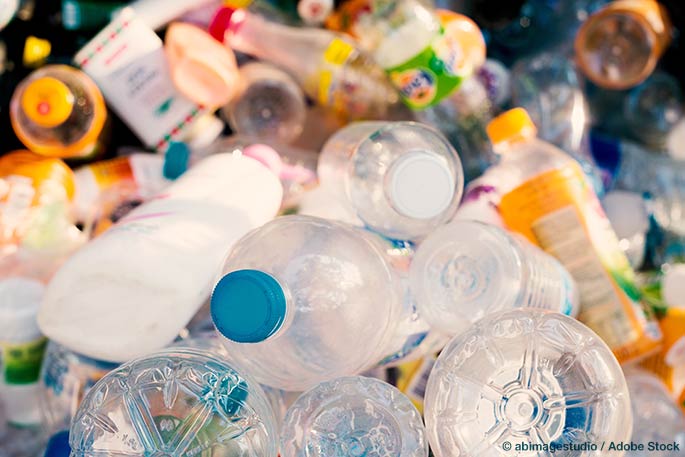
One of the potential solutions to plastic pollution, which threatens to choke the world’s landfills and oceans, is to find a way to process plastic before it becomes a problem. According to Earth Island Journal, Federica Bertocchini, a developmental biologist who works at the Institute of Biomedicine and Biotechnology of Cantabria in Spain, may have stumbled upon a solution back in 2012. Bertocchini had discovered some wax worms, larvae of the wax moth, in some bee hives she had been working with. The wax moth often lays eggs in beehives, where they feed upon the wax that bees make to build them.
Bertocchini placed the wax worms in a plastic bag for disposal. Later, much to her surprise, the creatures had eaten their way out of the bags. Further experiments suggested that the wax worms can digest and process plastic in the same manner as they do the wax in beehives. Where the most common plastic takes centuries to degrade, the worms were able to break it down in a few weeks or months.
The research points the way to a possible solution to the problem of plastic pollution, using biology to process the stuff before it makes its way to landfills or the ocean. Other scientists have found a species of bacteria that can break down plastic in a matter of days.
Of course, biological processing of plastic is just one of many possible solutions to the problem of plastic pollution. Recycling is another idea that might become more economically viable, as it can change discarded plastic bags and containers into other useful products. Certainly, both biological processing and recycling should be tried to address the plastic that has already reached the environment.




































































































































 Three Ways to Engage Teams and Clients to Maximize Your Recycling Program Engagement
Three Ways to Engage Teams and Clients to Maximize Your Recycling Program Engagement  How to Integrate Accessibility Into Your Sustainability Planning
How to Integrate Accessibility Into Your Sustainability Planning  Why Park Benches Can Promote Workplace Well-Being
Why Park Benches Can Promote Workplace Well-Being 
